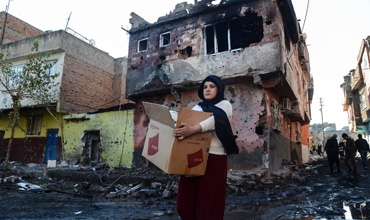Disparate Policies in Social Education Practices Damage Social Peace

Abstract:
Educational
policies and practices in Bangladesh are dominating issue in terms of managing
educational establishments. Disparate policies and practices in educational
profession are prone to damaging social peace has become apparent in the
writing and study. Education is the destiny for a nation and a core field that
helps the nation develop all sections of activities and make fit her citizens
as a rich nation.
The
study has got several issues of importance and found that worthy citizens who
boys and girls must be educated well and bring peace or prosperity if they are
well equipped with factors like supports and facilities which beget merits,
talents, skills and expertise and on the contrary, abuses of law, quota systems
for employments and education, discriminatory treatments in legal issues
towards boys who could not contribute more and more to building the nation but
have very less scopes for success due to readymade obstacles. The crimes and
corruptions, injustice, aggressive feminism policies, political undue scopes,
illiteracy and ignorance, poverty of boys and later as men grow in alarming
rates as a result of depriving them of their rights and opportunities at early
stages as citizens of the country. All supports and facilities such as free
education up to graduation levels, stipends, food for education programs and
legal supports only for girls students who easily achieve the opportunities in
education and employments have been issues of controversial behaviors.
KEY WORDS
Discrimination,
Free education, Stipend, Quota, Ignorance, Talent, Crimes, Feminism
References:
[1.]
A Philip G,
Patricia & Robert (2011), American Higher Education: Socio Political
Economical Challenges, Hopkins University Press , 3rd Edition , p 30-37.
[2.]
Asian Journal of
Inclusive Education (2012). Published in Dhaka,. Volume-1.
[3.]
Bangladesh
development Studies (2004) published by Bangladesh Institute of Development
Studies, Dhaka.
[4.]
Bangladesh Legal
Decisions (2009). Published by The Supreme Court Bar Association, Dhaka, Volume
: 20-50.
[5.]
J Ralph,
Lindgrem, Nanine (2010) The Law of Sex Discrimination, 4th Edition, Wadersworth
Publisher, , p 30-36.
[6.]
Law Guardian
(2007). Published by The Supreme Court Bar Association, Dhaka, Volume: 01-05.
[7.]
M Hilay, Lips
(2007 ). Sex and Gender, 2nd Edition, McGraw Hills College Press, p 30-46.
[8.]
N Sonia, Particia
Bode (2007 ) Socio Political Context of Education , Pearson Publisher, 5th
Edition, p 20-26.
[9.]
Taylor, Rupp and
Whittier (2011) Feminist Frontiers, McGraw Hill Education Publisher, 9th
Edition, p 50-59.
[10.] The Dhaka Law Report (2009). Published by The Supreme
Court Bar Association, Dhaka. Volume: 50-60.
[11.] The Lawyers (2009). Published by The Supreme Court Bar
Association, Dhaka, Volume: 01-05.
[12.] WD Peter Wright, Pamella (2007), Special Education
Law, Harbor House LAW Press, 2nd Edition, p 50-60.
[13.] Y Mitchell (2011) The Law and Special Education,
Pearson Pub, 3rd edition, p-41-47.

